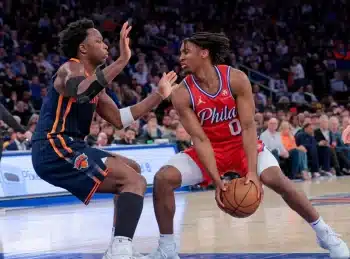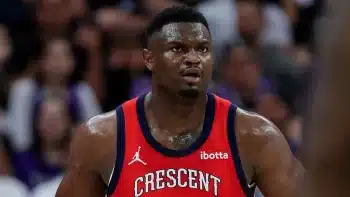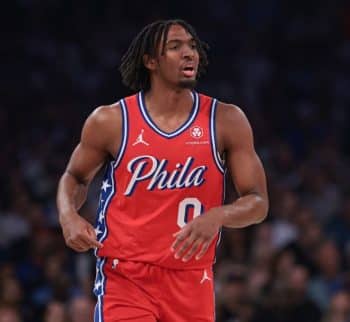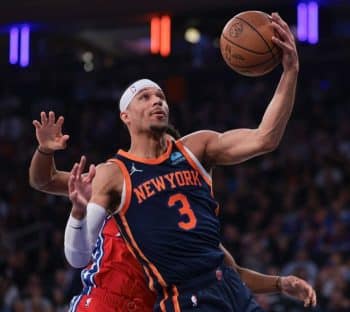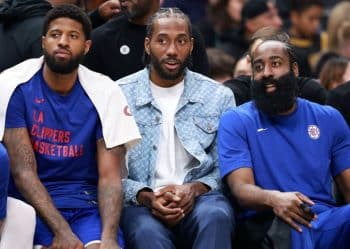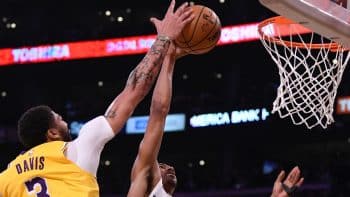NBA
How NBA Teams Are Fighting Fatigue
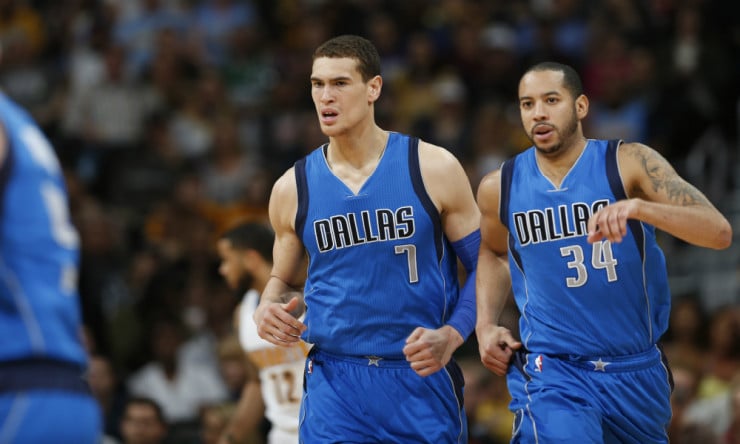
The average NBA team will travel anywhere from 35,055 miles to 53,575 miles in a season (based on data from the 2015-16 campaign). That’s a lot of miles for anyone, let alone professional basketball players who have to play an 82-game season and sometimes play the same day or within 24 hours after a flight. But it’s not just the travel. It’s the sleep (or lack thereof), fatigue and change in scenery that impacts a traveling team.
“Yeah, just imagine how it feels,” Utah Jazz point guard George Hill told Basketball Insiders. “To play a game and use the amount of energy that we do, then get on a flight in the middle of the night, arrive in a different city with a different hotel and a different food menu, then having to play not even 24 hours later, it’s really tough.”
Most players around the league won’t play the blame game when it comes to back-to-backs and road trips, but the truth of the matter is it affects them greatly. This season, an average of 16.3 back-to-back games are played per team. And while we’re only 20 games in, the statistics already show the impact back-to-backs have on a team’s success. So far, teams are a combined 44-78 in games away from home in back-to-back situations. In fact, only three teams – the San Antonio Spurs, Utah Jazz and Golden State Warriors – have a winning record in road back-to-back games. The Spurs are the only undefeated team in these scenarios, and they’re also most known for resting players.
“The second night of a back-to-back is always difficult,” Dallas Mavericks forward Dwight Powell told Basketball Insiders. “Travel is always a factor throughout the season, but on back-to-backs especially. You’re crossing time zones and your body is taking a bigger hit. Most teams will do what they can to help the recovery process as much as possible. They’ll allow you to sleep in and provide meals, so players can maximize their rest and things of that nature. But there is still an effect on our performance. Some nights more than others, but no one is at 100 percent on the second night of a back-to-back as compared to a home game with two days of rest.”
Obviously, resting players isn’t the solution either. Fans pay to see the games with stars playing, not sitting. And as our Joel Brigham recently pointed out, it’s also in the best interest of the league to keep the season at 82 games.
“They’re a part of the game,” Mavericks owner Mark Cuban told Basketball Insiders regarding back-to-backs. “But the fewer, the better.”
“It makes no sense to me,” Dr. Charles Czeisler, director of sleep medicine at Harvard Medical School, said to ESPN last year. “These guys are so extraordinarily talented, and it’s a shame that they’re being impaired. It’d be like the NBA saying, ‘OK, let’s see how they do if we starve the players. OK, let’s see how they do if we make them all drunk before they play, so everybody has to do six shots before they do the game.’ Would anyone in their right minds consider that?”
The scheduling is not perfect and it’s clearly not in the best interest of the teams or the players. Everyone can theorize ways to shorten the season or add days to limit the number of back-to-backs, but that’s not an immediate solution. Altering the schedule is a process that could take years, especially with the checks and balances in the NBA. While four games in five nights, back-to-backs and long road trips dilute the product on the court, the NBA can’t cut them out immediately for a variety of reasons.
So in the meantime, NBA teams understand they need to continue to improve their travel processes. Teams have started using brand partnerships and new technology to help the recovery process for players. The Mavericks are a good example, as they recently partnered with the popular bedding company, Bedgear. The company provides custom-made pillows, sheets and pillow cases with temperature regulation, which helps players with sleep performance.
“You can say ‘go get a good night’s rest’ to these players, but we’re leaving the player to determine what that is,” CEO of Bedgear Eugene Alletto told Basketball Insiders. “They may have a curfew, but the teams aren’t checking to see if that player is actually getting enough sleep, or if the beds actually work for a seven-foot player. We found that on the road, it’s not the conditioning with most players [that affects play], it’s fatigue. Elite athletes are fitted for their shoes and apparel, but arguably the most important thing needed – sleep – is left out. That’s where we come in. Our slogan ‘sleep fuels everything’ is there for a reason.”
The product is also partnered with the Boston Red Sox, and it’s designed to help the sleep process for virtually anyone. Cuban actually reached out to BedGear for the partnership, according to Alletto, citing the fact that taking care of his players and the community mattered.
“I love Bedgear,” Cuban said. “We’re trying to get smarter about sleep, and Bedgear makes that easier.”
“I’m really enjoying my new pillows and sheets from Bedgear,” Mavericks point guard Devin Harris told Basketball Insiders. “I’m sleeping better than ever and know that every detail, like a good night’s rest, matters in recovery and performance.”
WHOOP, another company that’s providing advanced technology for NBA players, has created bands that track the recovery process for each player. Recently, Toronto Raptors point guard Kyle Lowry used the product and had some interesting statistics to back it up; WHOOP pulled a five-game stretch in relation to his recovery score and noticed an incredible difference.
 “By using WHOOP, I was able to see how my recovery affected my shooting and free-throw percentage… even my turnovers. That blew me away,” Lowry told WHOOP in a recent article.
“By using WHOOP, I was able to see how my recovery affected my shooting and free-throw percentage… even my turnovers. That blew me away,” Lowry told WHOOP in a recent article.
Even with the small sample size, it’s apparent that back-to-back games are affecting the NBA. While there’s no quick fix to reduce the amount of games played, brands like WHOOP and Bedgear are providing top-of-the-line tracking and technology to maximize players’ recovery process. The NBA may not change the season or schedule anytime soon, so teams have started taking matters into their own hands.
